As someone who didn’t try in high school, coming to college was a reality check.
Although everyone supposedly learned how to study before college by skimming notes, students need to relearn how for the avalanche of midterms in college. On average, full-time college students spend 15-hours per week studying, according to The National Survey for Student Engagement 2011. Although this tends to match what professors expect from their students, those 15 hours spent studying need to be used to get the A, not the D.
1. Set up the environment
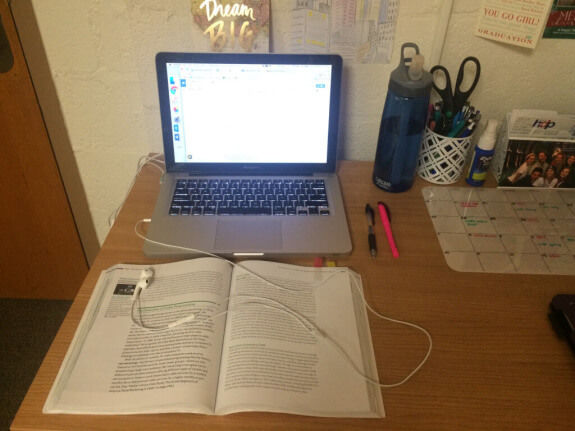
Before starting to study, I always make sure to find the most effective environment. Keep in mind what helps you personally when finding your study place. If you’re the kind of person who needs loud surroundings, set up camp in the dining hall. If you need non-distracting music, try classical or foreign language music. Spotify provides some of the best places to find studying playlists.
2. Time yourself
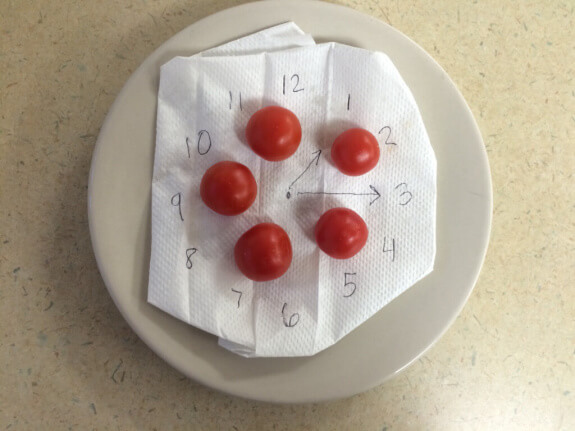
You don’t need to work yourself to death by locking yourself in a study room all night. Focusing on one task at a time can work much better by giving your mind the rest it needs. The pomodoro technique improves mental agility because you can work for 25 minutes, take a five-minute break and repeat. This technique lets you break up your studying and not work for hours on end.
3. To-DONE vs. to-do
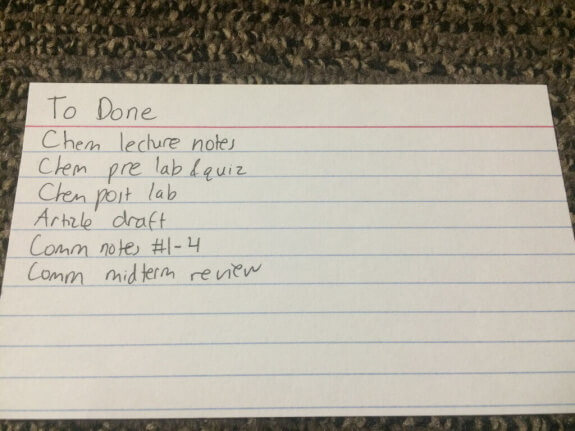
Although making lists is every disorganized person’s least favorite task, making “to-done” lists changed the way that I see studying. Instead of making a list of the tasks you need to accomplish, make a list of the tasks you’ve already knocked out. That way, at the end of your studying session you have a list of accomplishments instead of a list of unchecked boxes. Trust me, that’ll make you feel like a boss.
4. Everything but the kitchen sink list
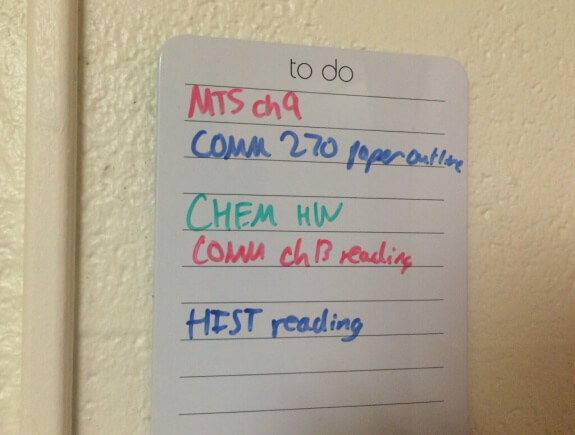
If to-done lists don’t sound like your cup of tea, to-do lists that hold you accountable work as well. Research by Dr. Gail Matthews of Dominican University shows that 76% of people who make a to do list and are responsible for updating someone else on their progress accomplish their goals. If you don’t have someone to hold you accountable, use an app (I like myHomework). People tend to accomplish more when they can eliminate something on a list.
5. A method to the madness
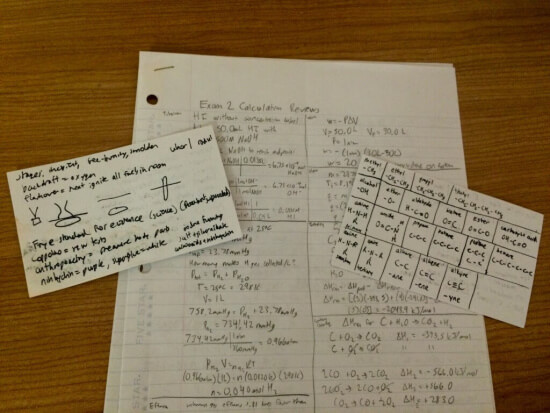
Reviewing your notes is often useless unless you use the right methods. Personally, I prefer to use conventional study methods in unconventional ways. Rather than making flashcards with terms and definitions, use flashcards to write down bits of information that you can study while out and about. This allows you to study in smaller doses and have others quiz you while you wait for your food at District Taco. My best kept secret is using cheat sheets. In high school, I used them to write down every possible bit of information in handwriting so tiny I needed a magnifying glass. Instead of putting every piece of information on my cheat sheet, I go through my notes and pick out the most important information to add to the sheet. I then use the study sheet to review my notes. Best of all? Rewriting the most important facts from class helps you retain everything for the test.
6. Types of learners

All people learn differently, so knowing how you learn best to play to your strengths is the difference between post-test panic and post-test margarita celebrations. You can pick from four main types: visual, auditory, kinesthetic and reading-writing.
Visual learners tend to understand concepts better when shown them through visualizing, graphs and charts. Auditory learners grasp concepts by hearing them aloud, so try reciting information out loud (something that probably shouldn’t be done on the quiet floor of the library) or asking questions and hearing answers. As for kinesthetic learners, they handle concepts by physically doing something with them, so you’ll want to role play or get up and act like the powerhouse of the cell. Reading-writing learners grasp concepts by interacting with text, so doing quizzes or making flashcards makes you chem experts.
Major pro tip: Getting three hours of sleep and drinking three shots of espresso in the morning doesn’t help you do as well on that important midterm. While college and grades are important to success in future jobs, keeping a balance leads to success in life.



















